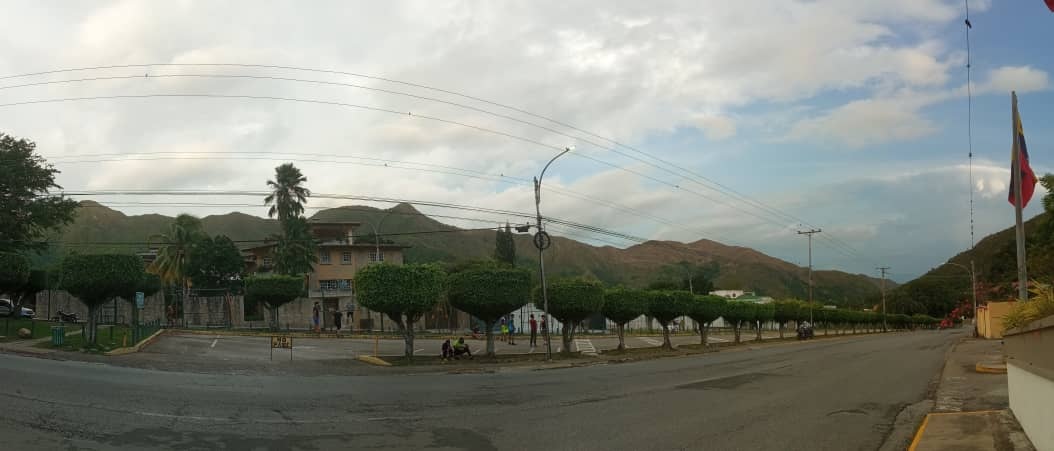My parents loved to visit family during school vacations. These were long-distance trips we took to the western part of the country. I have many memories of them, each one leaving me with a lesson.
One of the trips that had the greatest impact on me was the one we took once to visit my mother's paternal aunt, who lived in the mountains between Lara and Falcón.
That aunt and her husband had raised my mother's youngest brother, because at the time of his birth, my grandmother died in childbirth, something that was still very common in rural areas of the country in the early decades of the 20th century.
The trip to my aunt's house involved several stops. We left Caracas and after about eight hours on the road we arrived in Carora, in the state of Lara, where my grandfather and some of my paternal uncles lived, two or three of whom were almost my age. At that time, the trip from Barquisimeto to Carora was made on a dangerous road with many curves and large gorges. The truth is that it was a very unpleasant journey. Today, the same route is made on a comfortable, straight highway.
Upon arriving in Carora, a message was sent via the local radio station announcing that my mother and her family would arrive on the agreed-upon day in the town of San Francisco, the second stop on our trip.
Back then, in the mid-1960s, there were no telephones in that area, so the radio played a major role in keeping the population informed. All kinds of messages were broadcast on the radio, announcing births, marriages, family visits, deaths, requests for medicines, and things of that nature.

The trip from Carora to San Francisco was made by Jeep on a dusty road that crossed the desert savannah. Before getting into the Jeep, everyone prepared for the dust. We covered our heads with T-shirts and hats, and my mother brought sunglasses for each of us.
After about eight more hours of traveling at a snail's pace through the rugged savannah, we arrived in San Francisco, a small town with few streets, none of them paved. We spent the night there, and at about four in the morning, we made the third stop on our trip...
We set off in a Jeep, driving along the riverbed, which was the road. When the river rose, everyone was cut off and had to wait for the waters to recede before they could pass again.
We drove along that rocky riverbed, also very slowly, for about six more hours, until we reached the foot of a huge mountain. There began the fourth and final stage of our journey.
We climbed the mountain on the backs of donkeys and mules. That was the part I liked best. Seeing the world from atop those animals gave me a completely different feeling.
After about five more hours of travel, we finally arrived at the home of my mother's aunt and uncle, two elderly people who shared their lives in that remote place with my mother's younger brother.
We spent about two weeks there in the mountains, and I must admit that more than having fun, those trips were made to fulfill the sacred duty of visiting family.
Of course, for a boy like me, coming from the big city, everything was new.
I would go out with my uncle, my mother's brother, to do some of the everyday chores. He was very aware that I didn't belong in that world and took extreme care of me. When we went to fetch water from the well, he told me not to stand behind the mules, but beside them, so that I wouldn't run the risk of being kicked.

Once at the well, he wouldn't let me go near the edge, lest I slip and fall in. I would pass him the containers, and when he filled them, he would tie them very carefully to the mules' backs. We made those trips to fetch water every other day.
I also accompanied my uncle twice a day to the pen where the goats were kept. In the morning, the goats were milked, the kids were checked to make sure they were in good condition, and then they were released to forage for food in the nearby trees.
In the afternoon, we would travel long distances chasing the goats back to the pen. My uncle would drive them along by throwing large stones at them with a sling, an instrument made of leather and string. That was the same instrument with which, according to the biblical account, David defeated Goliath, striking him on the forehead with a stone.
I spent almost the entire day outside the house with my uncle, a very simple man with no formal education who never went to school, but who was always very sensitive and, knowing that I was his sister's son, had a special affection for me. He is still alive, a fairly elderly man. We occasionally talk on WhatsApp and reminisce about many of those moments when he taught me about life in the countryside.
As you can see, it was almost impossible for a trip like that not to have an impact on the mind of a ten-year-old city boy. The truth is, I have never forgotten it.
I am posting this motivated by the initiative proposed by my friends in the @silverbloggers community. To join, click on the following [link]( https://peakd.com/hive-106316/@hive-106316/the-silverbloggers-chronicles-prompt-7).
Thank you for your time.
Translated with DeepL.com (free version).


